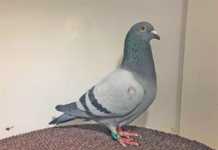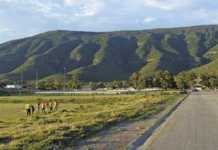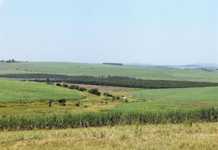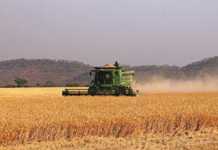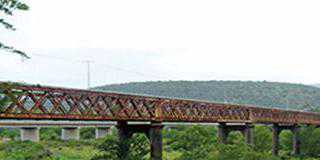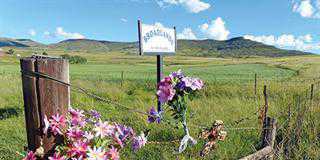The school sells the produce to the community to raise money to buy uniforms and feed its 38 orphans and 70 desperately poor children. “The number of orphans and needy learners grows every year,” said teacher and project coordinator Mfana Nkuna. The school, which has 700 pupils altogether, is situated in Mzinti village in Mpumalanga’s Nkomazi area, which sprawls south of the N4 highway to the borders of Swaziland and Mozambique. The area has a high unemployment rate and a large population of orphans and vulnerable children due to the prevalence of HIV/Aids.
Mzinti Primary School entered the BMW food gardening competition in 1999 and was adopted by the BMW seed programme, which has taught the staff how to grow vegetables using permaculture – an environmentally friendly way of farming that stresses the need to work with and not against nature. “Today we are experts in producing vegetables using the permaculture method,” Nkuna said, adding that the children are also taught how to grow vegetables so they can continue to feed themselves when they leave school.
The children are fed at school, but are also given food to take home in the afternoons. “We don’t want them to starve when school closes,” Nkuna said. Nontokozo Hlophe (12), a Grade 6 learner whose parents died last year, leaving her in the care of her grandmother, says she has started her own small garden at home. “I am very happy with the project,” she said. “I have learned a lot from my teachers.” The school also started a poultry project in June. “We bought 200 one-day-old chicks and feed them so that when they are bigger, we can sell them to our local communities,” Nkuna said.
The school has a small orchard with 36 fruit trees donated by Food and Trees for Africa in Johannesburg, and plans to start an indigenous tree nursery to replace trees that villagers have chopped down in the veld for firewood. “The rehabilitation of our land has become a vital part of our programme. We hold environmental awareness workshops at local schools and have already attended many workshops on how to care for the soil and environment,” Nkuna said.

